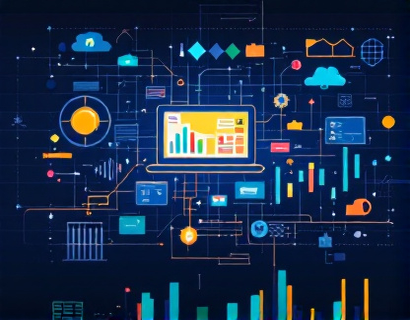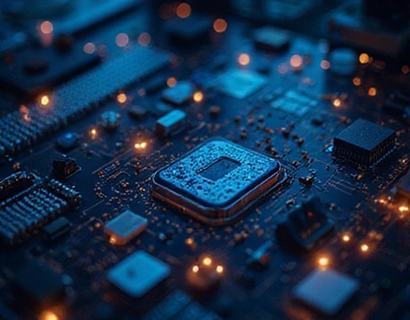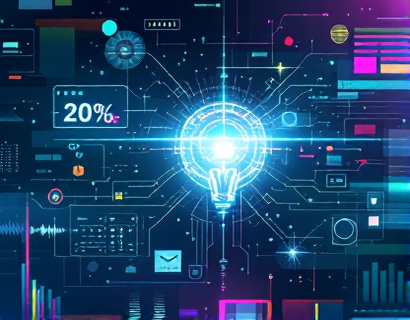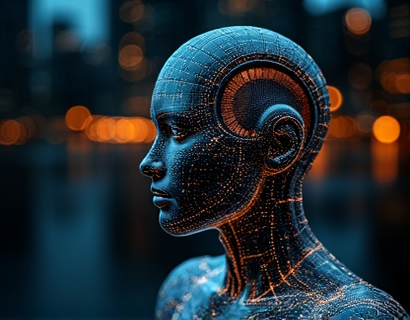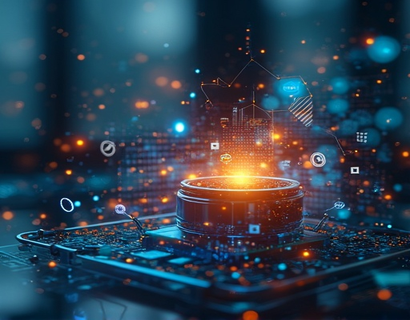Revolutionizing Digital Finance and Technology: The Synergy of AI and Crypto
The intersection of artificial intelligence (AI) and cryptocurrency is ushering in a new era of digital finance and technology. This convergence is not just a technological advancement but a paradigm shift that is redefining how we interact with financial systems and technological innovations. The integration of AI into the crypto space is creating smart solutions that enhance user experiences, improve security, and open up new possibilities for decentralized applications and services.
Enhancing Security with AI
One of the most significant benefits of merging AI with cryptocurrency is the enhancement of security measures. Traditional cryptographic methods, while robust, are increasingly being challenged by sophisticated cyber threats. AI algorithms can analyze vast amounts of data in real-time to detect anomalies and potential security breaches. Machine learning models trained on historical data can predict and prevent fraudulent activities, ensuring a safer environment for users. This proactive approach to security is crucial in a space where trust and reliability are paramount.
For instance, AI-driven systems can monitor transaction patterns and identify unusual activities that may indicate a hack or a scam. These systems can automatically alert users and take preventive actions, such as freezing accounts or blocking suspicious transactions. This level of vigilance is difficult to achieve with manual monitoring alone, making AI an indispensable tool in fortifying the security of crypto platforms.
Improving User Experience through Personalization
AI technologies are also transforming the user experience in the crypto domain by offering personalized services. Personalization is key in digital finance, where users have diverse needs and preferences. AI algorithms can analyze user behavior, preferences, and historical data to provide tailored recommendations and services. This could range from suggesting optimal investment strategies to customizing wallet interfaces for a more intuitive user experience.
For example, AI-powered chatbots can offer 24/7 customer support, answering queries and providing guidance in real-time. These chatbots can understand natural language and learn from interactions to improve their responses over time. This not only enhances user satisfaction but also reduces the workload on human support teams, making the service more efficient and cost-effective.
Optimizing Trading Strategies with AI
The trading landscape in the crypto market is highly dynamic and complex. AI algorithms can process and analyze vast amounts of market data, including price movements, trading volumes, and news sentiment, to identify trends and patterns that human traders might miss. This capability allows for the development of sophisticated trading strategies that can adapt to changing market conditions in real-time.
Autonomous trading bots powered by AI can execute trades based on predefined criteria, minimizing emotional decision-making and reducing the risk of human error. These bots can operate around the clock, capitalizing on market opportunities that may arise at any time. Additionally, AI can help in risk management by setting stop-loss and take-profit levels dynamically, ensuring that trades are executed optimally.
Portfolio Management and Asset Allocation
AI-driven portfolio management tools are revolutionizing how users manage their crypto assets. These tools use machine learning to analyze historical performance, market trends, and economic indicators to suggest optimal asset allocation strategies. By continuously learning from new data, these algorithms can adjust portfolio compositions to maximize returns while minimizing risk.
For instance, an AI-powered portfolio manager can rebalance assets based on predicted market movements, ensuring that the portfolio remains aligned with the user's risk tolerance and investment goals. This level of automation and intelligence is particularly valuable for investors who may not have the expertise or time to manage their portfolios manually.
Decentralized Finance (DeFi) and AI
The rise of DeFi has opened new avenues for financial innovation, and AI is playing a crucial role in this space. DeFi platforms leverage blockchain technology to create transparent, accessible, and decentralized financial services. AI can enhance these platforms by providing advanced analytics, risk assessment, and automated execution of complex financial instruments.
For example, AI can be used to develop smart contracts that automatically execute transactions based on predefined conditions, ensuring that all parties adhere to the agreed terms. This reduces the need for intermediaries and lowers transaction costs. Additionally, AI can help in identifying and mitigating risks associated with lending, borrowing, and yield farming, making DeFi more accessible and secure for a broader audience.
Yield Optimization
One of the key applications of AI in DeFi is yield optimization. AI algorithms can analyze multiple DeFi protocols and market conditions to identify the most profitable opportunities for earning interest or rewards. These algorithms can dynamically allocate funds across different protocols, maximizing returns while managing risk. This level of optimization is particularly beneficial in a market where interest rates and rewards can fluctuate rapidly.
Moreover, AI can help in identifying liquidity pools with the highest potential returns and suggest strategies to efficiently move funds between different pools to maximize yield. This continuous optimization ensures that users can achieve better returns on their investments, making DeFi more attractive and efficient.
Enhancing Blockchain Scalability with AI
Scalability remains a significant challenge for blockchain technology, and AI is contributing to solving this issue. By analyzing network data and transaction patterns, AI can help optimize blockchain protocols to handle higher volumes of transactions without compromising security or decentralization. This involves developing more efficient consensus mechanisms and improving data processing capabilities.
For instance, AI can assist in the development of layer 2 solutions, such as state channels and sidechains, which offload some transactions from the main blockchain, reducing congestion and transaction fees. AI algorithms can dynamically adjust these solutions based on real-time network conditions, ensuring optimal performance and scalability.
Cross-Chain Interoperability
AI is also playing a role in enhancing cross-chain interoperability, a critical aspect of building a unified and interconnected blockchain ecosystem. By analyzing data from multiple blockchains, AI can facilitate seamless asset transfer and communication between different networks. This interoperability is essential for creating a truly decentralized and interconnected financial system.
AI-driven protocols can automatically detect and resolve compatibility issues, ensuring that assets and data can flow smoothly across different blockchain platforms. This not only enhances the user experience but also fosters innovation by allowing developers to build on a more integrated and versatile ecosystem.
AI in Cryptocurrency Development
The development of new cryptocurrencies and tokens is another area where AI is making a significant impact. AI tools can assist in the design and implementation of blockchain protocols, smart contracts, and token economics. By simulating various scenarios and analyzing potential outcomes, AI can help developers create more robust and efficient cryptocurrencies.
For example, AI can optimize token distribution models to ensure fair and sustainable growth, preventing issues like centralization and inflation. Additionally, AI can analyze market demand and user behavior to suggest token utility and features that align with user needs, increasing the adoption and utility of the cryptocurrency.
Community Engagement and Governance
AI is also transforming community engagement and governance in the crypto space. AI-powered tools can analyze community sentiment, feedback, and participation to inform decision-making processes. This data-driven approach ensures that the development and governance of crypto projects are more inclusive and responsive to the needs of the community.
AI can facilitate decentralized governance by automating voting processes, ensuring transparency, and preventing manipulation. By analyzing voting patterns and outcomes, AI can provide insights that help improve the governance mechanisms, making them more efficient and fair.
Future Prospects and Challenges
The integration of AI and cryptocurrency holds immense potential, but it also comes with challenges. One of the primary concerns is the regulatory landscape. As AI and crypto continue to evolve, regulators are grappling with how to oversee these technologies to prevent misuse and ensure compliance. Striking the right balance between innovation and regulation will be crucial for the sustainable growth of this sector.
Another challenge is the ethical use of AI. Ensuring that AI algorithms are transparent, fair, and free from bias is essential to maintain trust and integrity in the crypto ecosystem. Developers and organizations must prioritize ethical considerations in AI development and deployment.
Looking ahead, the synergy between AI and cryptocurrency is likely to deepen, leading to even more innovative solutions. As technology advances, we can expect to see more sophisticated AI-driven tools that further enhance security, personalization, and efficiency in the digital finance and technology space.





